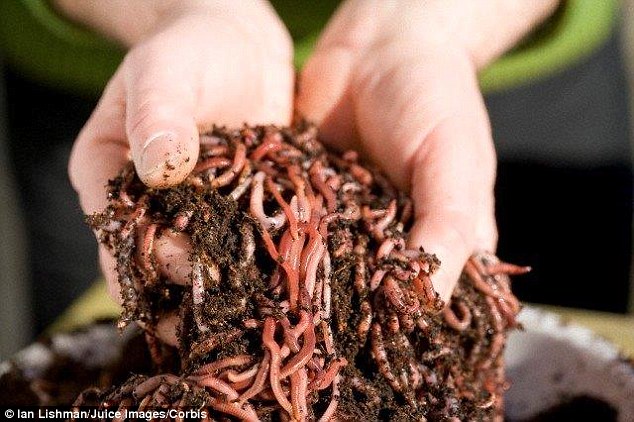Why can earthworms eat contaminated leaves?
Earthworms live on the ground and digest excess products from plants such as leaves and roots and then release soil fertility. However, many cases of digestive earthworms must have leaves that contain toxins, can they die?
Explaining the cause of earthworms can "neutralize" poisoned leaves
The answer will probably be no, because a biology study has recently found a chemical called drilodefensins in the intestines of earthworms. This chemical claims to be able to resist polyphenols - a toxic chemical in leaves to prevent them from being turned into other food by other organisms.

Drilodefensins containing surfactants help break down other compounds. It has many characteristics similar to the chemicals in people's daily dishwashing liquid. Although it has been found for a long time on earthworms, it is not until now that scientists can understand the function of this chemical. However, it is only available in 14 different earthworm species that even even relatives with earthworms are leeches.
To test the hypothesis that Drilodefensins can help prevent toxic substances in leaves, scientists have fed worms to oak leaves, leaves with high tannic acid levels and then analyzed. How chemical substances change in the body of worms.
It is estimated that researchers have at least about 1 kilogram of existing drilodefensins on Earth and within the bodies of earthworms. This shows the importance of drilodefensins when it has helped many places on Earth today not be overwhelmed by the invasion of leaves.
Dr. Jake Bundy is from the University. Royal London (UK) said: "Without drilodefensins, fallen leaves will remain long-term on the ground for a long time and create dense layers."
Research co-author Dr Dave Spurgeon from the Center for Ecology and Hydrology in Wallingford, Oxfordshire said: "We have determined that earthworms are exactly like the" plow of nature "that Darwin has When they have a mechanism that can cope with toxins in many types of leaves, drilodefensins play a role in supporting earthworms as an ecological engineer in the carbon cycle. "
- Causes of earthworms appear after rain
- Earthworms after being interrupted why turn into many?
- Students chattered because of earthworms
- Earthworms and the ability to treat hypertension
- Earthworms help slow climate change
- Special technology leaves the leaves after a few hours
- Detection of earthworms up to 2m long
- Turn leaves into creativity 'no one expected
- 15 items of medicine from bamboo
- Beams of maple leaves fall extremely romantic and beautiful
- Why sawn wax leaves with holes?
- Earthworms can grow well in Martian soil
 Animal 'suffering' after hibernation
Animal 'suffering' after hibernation Why do goats climb well?
Why do goats climb well? Scientists were surprised to see chimpanzees eating turtles
Scientists were surprised to see chimpanzees eating turtles Giant catfish died deadly due to drought in Thailand
Giant catfish died deadly due to drought in Thailand